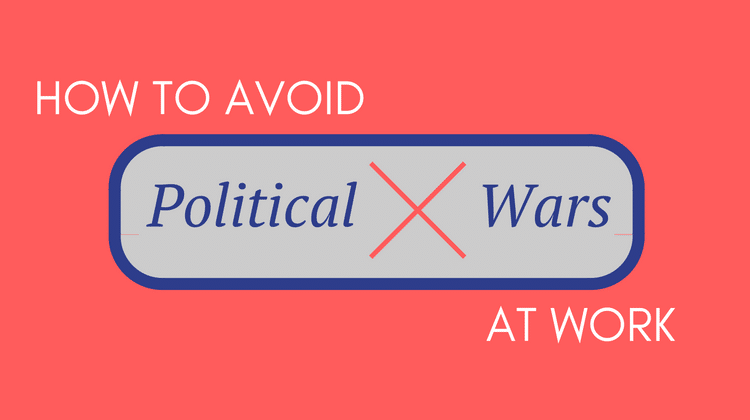
You just watched the political debate. After hours of news headlines and social media posts focused on the discussion, you still haven’t digested the information that was delivered by the candidates on national television.
Then you go to work and your opinionated co-worker pops the big question, “So, what did you think about the debate last night?”
You wish you had time to quickly weigh your options. If only you could freeze time and say, “Wait. Let me think about the best way to articulate my opinions to ensure that my thoughts don’t lead to a destructive conversation with you.”
But that isn’t reality.
You have less than five seconds to give a response that can determine your professional future. Here is what you should consider doing:
Smile Before You Proceed
You might even want to add a chuckle, too. No, you are not a little girl begging for attention. You just don’t want to start off with verbal attacks that can immediately turn the conversation south and leave you and your co-worker with furious frowns. Set the mood for a light-hearted and open-minded encounter during a time when people may be tempted to rip each other’s heads off. Political venom is spilling over into the workplace and you want to make sure you don’t add fuel to the fire. Choose to smile.
Do Your Own Fact Checking
Do your research so you can be prepared to discuss factual information, not media censored details that have been used to stir up everyone else in their political sprawls. You want to create a neutral foundation that is based on truths that everyone can agree upon. And you want to build your credibility by showing that your political views aren’t built upon the intense comments that are made on television.
Don’t Get Carried Away With Verbal Attacks
You may be a ticking time bomb that’s ready to explode after hearing some of the responses at the President Debate, but your workplace isn’t the best place to release the steam. If there is even a remote chance that someone in your presence supports the opposing candidate, you need to be mindful of what you say and how you say it. Try to avoid name-calling, and use your words to focus on the “areas of opportunities” for each candidate.
The Best Leaders Listen, Even When They Don’t Agree
Listening to others is a sign of respect. It shows that you are willing to get outside of your biased beliefs and take the time to hear the views of others. Don’t discount their opinions; their beliefs are due to experiences that have made them feel this way. Instead of attacking your co-workers’ views, simply say, “I respect your opinion. I may not agree with every statement because my life experiences have led me in a different direction, but it’s interesting to hear your perspective.” Drop your pride and seek to find the value in what others have to say. A true leader is willing to go beyond their own emotional needs.
Take The Political Pressure off of You
Seek to learn something new — it’s the best thing you can do when you have co-workers who are on a political rampage, ready to impose their beliefs on anyone in their presence. Use this as an opportunity to ask non-threatening questions. Find out the “why” behind the passion.
Turn the Tables
In the end, the political debates are not about the candidates but about the possibilities for our country. It’s a debate to determine what matters most and how a candidate plans to accomplish those goals. In order to decrease any tension that may be boiling, focus on your vision for the country and identify common goals of both parties. Don’t be afraid to focus on the future of this country without attaching deep emotion to every word that you say in the workplace.


In regards to the article “Political Wars at Work”. I agree somewhat. If you know the person well and they know you I think it would be best to be honest. If you know that person may have different views then you really do not have to discuss it.